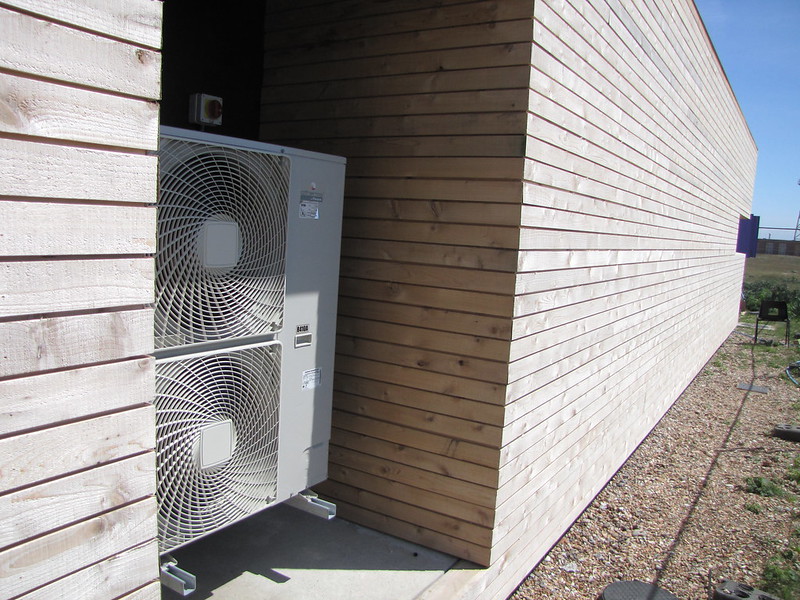Air-to-water heat pumps can produce some noise in the ducts, but the amount of noise depends on various factors such as the design of the ductwork, the size and capacity of the heat pump, and the placement of the ducts. Modern heat pumps are designed to operate quietly, and many have features such as insulated cabinets and variable-speed fans to minimize noise. However, if the ductwork is not properly designed or installed, it can create noise by causing air turbulence or by vibrating against surrounding surfaces.
Understanding the Noise Factors
The noise level of an air-to-water heat pump can be influenced by several factors:
-
Ductwork Design: The size, shape, and layout of the ductwork can significantly impact the noise level. Poorly designed or installed ductwork can create air turbulence, leading to increased noise.
-
Heat Pump Size and Capacity: Larger heat pumps with higher BTU ratings may produce more noise due to the increased airflow and compressor operation. Choosing the right-sized heat pump for your home is crucial to minimize noise.
-
Duct Placement: The location of the ductwork within the home can also affect the perceived noise level. Ducts that are routed through living spaces or near bedrooms may be more noticeable than those in attics or other isolated areas.
-
Heat Pump Features: Modern heat pumps often incorporate noise-reducing features, such as insulated cabinets, variable-speed fans, and compressors designed for quiet operation.
-
Installation Quality: Proper installation by a qualified HVAC contractor is essential to ensure the heat pump and ductwork are balanced and functioning efficiently, which can help minimize noise.
Evaluating Noise Levels
According to a Reddit post in the r/heatpumps subreddit, a user had a contractor recommend a 24,000 BTU heat pump instead of a 30,000 BTU unit due to concerns about air noise in the ducts. The contractor mentioned that the 30,000 unit might create a lot of air noise in the current ducts, which range from 13″x10″ to 12″x8″. The user was concerned about air movement sounds in the ducts and whether the 30,000 unit would work instead of the more expensive 24,000 unit with multi-split ceiling units.
A YouTube video titled “How noisy are heat pumps?” states that heat pumps are not very noisy at all, but the actual noise level depends on the specific model and installation.
According to a blog post on DIY Home Comfort, the standard noise levels for heat pumps range from 70-75 decibels, while the quietest ones operate around 40-50 decibels. Any loud or unusual noises should prompt a check-up with an HVAC professional.
Minimizing Noise in Air-to-Water Heat Pumps
To minimize noise in an air-to-water heat pump system, consider the following strategies:
- Ductwork Design and Installation:
- Ensure the ductwork is properly sized and configured to accommodate the heat pump’s airflow requirements.
- Use insulated ductwork to reduce noise transmission.
- Avoid sharp turns or abrupt changes in duct size, which can create air turbulence.
-
Properly secure the ductwork to prevent vibrations and rattling.
-
Heat Pump Selection:
- Choose a heat pump model with a lower decibel rating, typically in the range of 40-50 dB.
- Consider a variable-speed or multi-stage heat pump, as these models often operate more quietly than single-stage units.
-
Consult with an HVAC professional to determine the appropriate size and capacity for your home.
-
Duct Placement and Insulation:
- Route the ductwork through areas of the home that are less occupied, such as attics or crawl spaces, to minimize noise transmission.
- Insulate the ductwork to prevent noise from traveling through the walls or ceilings.
-
Use sound-absorbing materials, such as duct liners or acoustic insulation, to further reduce noise.
-
Professional Installation and Maintenance:
- Hire a qualified HVAC contractor to properly install and balance the heat pump and ductwork system.
- Regularly maintain the system, including cleaning or replacing air filters, to ensure optimal performance and minimize noise.
- Address any unusual noises or vibrations promptly by having the system inspected and serviced by a professional.
By considering these factors and implementing the appropriate strategies, you can effectively minimize the noise associated with your air-to-water heat pump system and enjoy a more comfortable and peaceful living environment.

